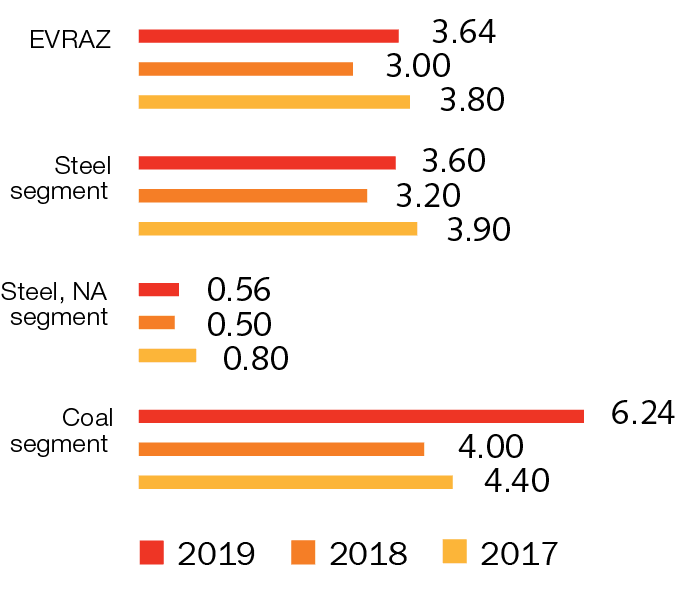Climate change
GRI 201-2
In view of the severity of the consequences of climate change, responding appropriately to this issue is a priority strategic area for global industrial society. Since EVRAZ production facilities require significant amounts of energy, managing the GHG emissions of our operations is of paramount importance.
In order to reduce impacts on the climate and to lessen related risks, the Group supports global programmes to reduce greenhouse gas emissions. In accordance with the Companies Act 2006, (Strategic Report and Directors’ Report – Regulations 2013), EVRAZ conducts full assessments of GHG emissions at all enterprises, and has participated in the Climate Change Adaptation Programme since 2011. Focusing on energy efficiency is a vital strategic area for EVRAZ, which will help reduce GHG emissions from the Group’s operations.
EVRAZ adheres to the requirements of the 2006 IPCC Guidelines for National Greenhouse Gas Inventories (IPCC 2006) and the WRI/WBCSD GHG Protocol Corporate Accounting and Reporting Standard, and applies the following approach to GHG emissions accounting:
- Evaluating direct emissions of all seven GHGs stated in the Kyoto Protocol (Scope 1)
- Assessing indirect emissions linked to the purchased electricity and heat (Scope 2)
We report GHG emissions for both segments expressed in tCO2e, calculated using the IPCC 2006 global warming potentials.
The Group proved its commitment to managing climate change by introducing a five-year target for its steel and steel-product-making operations (Steel and Steel, North America segments accounted for 70.90% of total GHG emissions in 2019) to maintain a specific GHG intensity ratio of below two tCO2e per tonne of crude steel cast. In 2019, this ratio reached 1.97 tCO2e, compared with 2.01 in 2018.
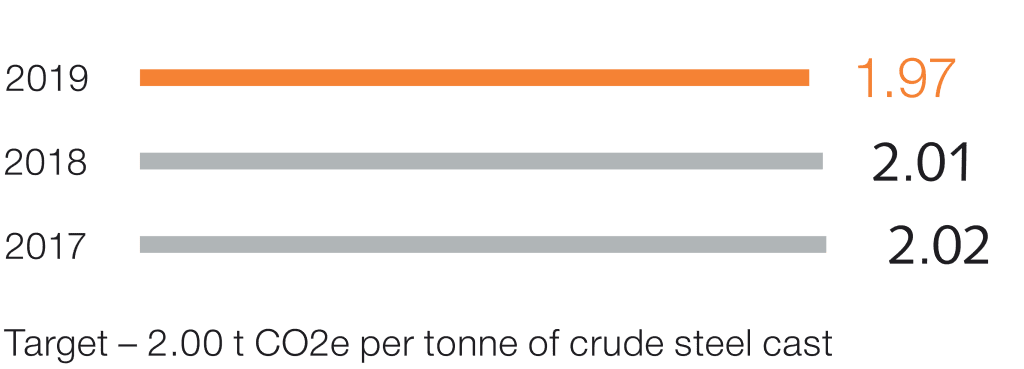
Coal segment operations made up 29.10% of total GHG emissions in 2019, vs. 23.85% in 2018, due to greater fuel consumption and increased coal production.
GRI 305-5
Overall the Group’s total GHG emissions rose almost 12% year-on-year, due to:
- Higher steel production at main steelmaking mills in Russia (Steel segment)
- Greater underground mining volumes, factors which are beyond the Group’s control such as increase of methane content in deeper coal seams being developed, and an intensification of preliminary methane drainage in order to improve safety conditions for employees at some mines (Coal segment). With this in mind, we are developing a project on utilisation of methane emitted from mines after drainage to decrease our full carbon emissions in 2020 and further
Direct operational emissions (Scope 1) in 2019 amounted to 39.06 million of tCO2e, while Scope 2 emissions totalled 4.28 million
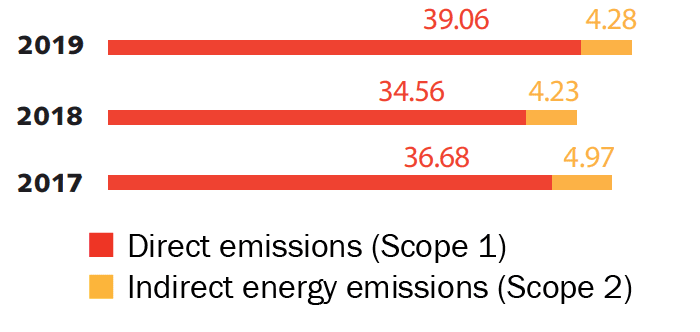
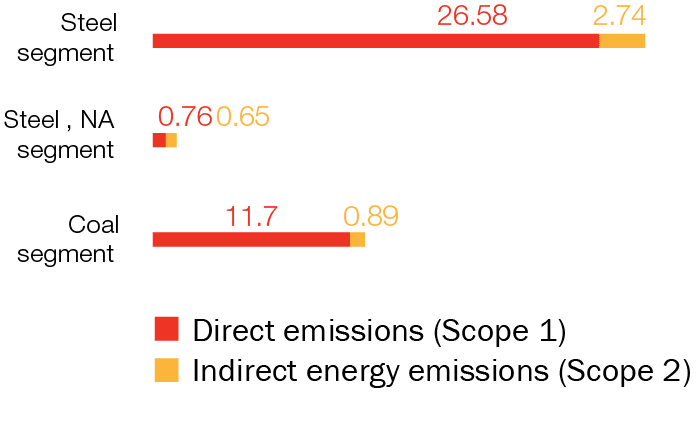
GRI 305-1, 305-2
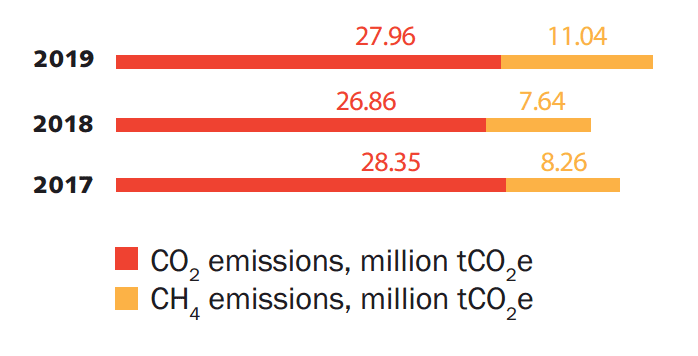
EVRAZ reports a specifc GHG intensity ratio per consolidated revenue, broken down by the reporting segments.
At the end of 2019, the Group began an active process of working on EVRAZ climate strategy. We recognise the importance of these issues, and therefore, in the next reporting period, the Group has already planned to carry out scenario analysis and mapping of risks and opportunities. In early 2020, it is scheduled to hold a managerial session with the EVRAZ management, in order to discuss in detail climate strategy issues.
GRI 305-4
